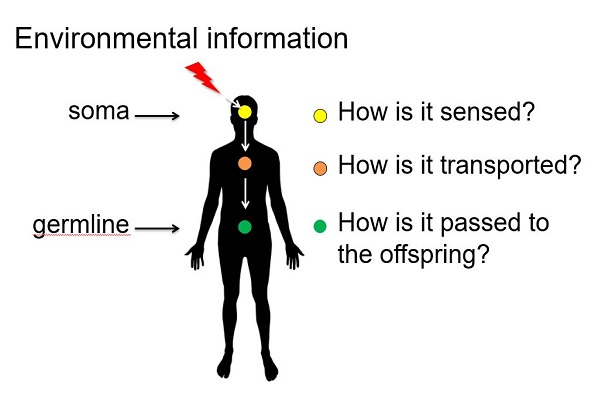
Energy-Sensing Pathways Mediate Intergenerational Inheritance
- Mark Viney
- Suitable for: Staff and students interested in Behaviour, Evolution, Ecology and Microbiology
- Admission: Free
Add this event to my calendar
Click on "Create a calendar file" and your browser will download a .ics file for this event.
Microsoft Outlook: Download the file, double-click it to open it in Outlook, then click on "Save & Close" to save it to your calendar. If that doesn't work go into Outlook, click on the File tab, then on Open & Export, then Open Calendar. Select your .ics file then click on "Save & Close".
Google Calendar: download the file, then go into your calendar. On the left where it says "Other calendars" click on the arrow icon and then click on Import calendar. Click on Browse and select the .ics file, then click on Import.
Apple Calendar: The file may open automatically with an option to save it to your calendar. If not, download the file, then you can either drag it to Calendar or import the file by going to File >Import > Import and choosing the .ics file.
Information sensed by the maternal generation may pass to the offspring to increase their fitness. However, the mechanisms of inheritance of adaptive maternal effects through the germline are largely unknown. We use a new model nematode that offers many advantages for studying this phenomenon, due to the easy-to-score phenotypes, short lifecycle and large reproductive output. We found that environmental stress experienced by the parental generation induces the production of stress-resistant offspring. Environmental signals sensed by neurons send signals to the germline to change its epigenetic and transcriptional profile. The signals to the germline are mediated by highly conserved energy sensors, raising the possibility that the same mechanism could be present in other organisms that display intergenerational inheritance.
